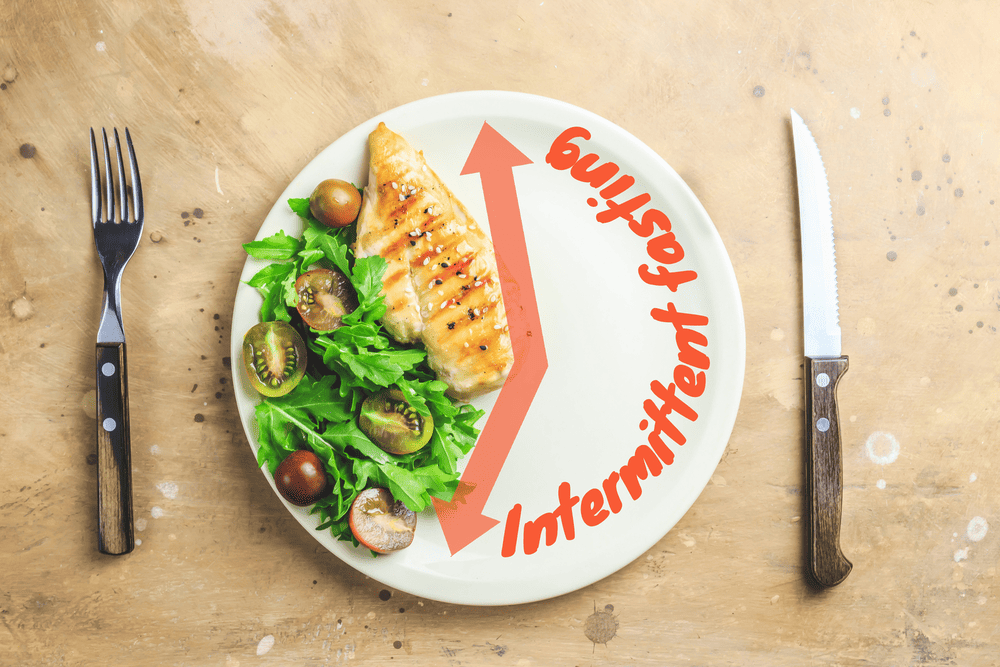What is Intermittent Fasting?
Hey there! I bet you’ve been hearing a lot about Intermittent Fasting but, what is intermittent fasting? Let’s dive into the world of intermittent fasting (IF), a health and fitness trend that’s been catching a lot of attention lately. Essentially, IF is an eating pattern where you cycle between periods of eating and fasting. It’s not about which foods to eat, but rather when you should eat them.
The Popularity and Trend of Intermittent Fasting

You’ve probably heard about Intermittent Fasting from a friend, social media, or even a health blog. Its popularity is soaring, not just among fitness enthusiasts but also among those seeking a healthier lifestyle. Why? Because it promises not just weight loss but also a host of other health benefits.
The Science Behind Intermittent Fasting
Intermittent fasting isn’t a new concept. It’s been around for centuries, often linked with traditional and cultural practices. But what does modern science say about it?
How Intermittent Fasting Affects Your Body
When you fast, several things happen in your body on the cellular and molecular levels. For instance, your body alters hormone levels to make stored body fat more accessible. Your cells also initiate important repair processes and change the expression of genes.
The Role of Hormones in Intermittent Fasting
Key hormones affected during fasting include insulin, which drops significantly, aiding fat burning, and human growth hormone (HGH), which may increase as much as 5-fold, supporting muscle gain and fat loss.
- Insulin: Fasting typically leads to a decrease in insulin levels, facilitating fat burning. Lower insulin levels make stored body fat more accessible as an energy source.
- Human Growth Hormone (HGH): Fasting can increase HGH levels, which aids in fat loss and muscle gain. This hormone is vital for growth, body composition, cell repair, and metabolism.
- Androgens: In females, intermittent fasting may decrease androgen markers, such as testosterone and the free androgen index (FAI) [https://www.ncbi.nlm.nih.gov/pmc/articles/PMC9182756/]. This alteration can impact reproductive health.
- Sex Hormones: There’s evidence suggesting that intermittent fasting can affect female sex hormones like progesterone and estrogen, potentially leading to hormonal imbalances [https://health.clevelandclinic.org/intermittent-fasting-for-women/].
- DHEA: A hormone linked to fertility, DHEA levels may also be influenced by intermittent fasting, as it is involved in the production of steroid hormones related to testosterone and estrogen [https://ahs.uic.edu/kinesiology-nutrition/news/new-data-on-how-intermittent-fasting-affects-female-hormones/].
These hormonal changes underscore the need for careful consideration and possibly medical consultation before starting an intermittent fasting regimen, especially for women due to the potential impact on reproductive hormones.
Common Methods of Intermittent Fasting

There are several ways to do IF, and it’s all about finding the one that fits your lifestyle.
The 16/8 Method
The 16/8 method is an approach to time restricted eating. This involves fasting for 16 hours and consuming all your daily calories in 8 hours. During the fasting phase, you can sip on calorie-free drinks like water, tea, and coffee to keep you energized and motivated. Staying away from snacks and junk food during the 8-hour window can help you maximize the benefits of 16/8 intermittent fasting.
By combining this method with a balanced diet and regular exercise, you can potentially enjoy weight loss, improved metabolic health, and an array of other health benefits, all while maintaining a healthy body weight.
The 5:2 Approach
The 5:2 diet plan is an effective way to achieve your health goals, as it involves eating normally for five days and restricting calories to 500-600 for two non-consecutive days. The 5:2 diet has been proven to be just as effective as daily calorie restriction for weight loss and blood glucose control for people with type 2 diabetes. According to a 2018 study, this diet can be a successful way to manage diabetes in the long-term.
The 5:2 diet plan gives you abundant flexibility. You are free to choose which days you fast. Besides, on full-calorie days, there are no restrictions on what or when to eat. To determine if the 5:2 diet plan could work for you, consult your doctor and see if it could be a great fit.
Eat-Stop-Eat Method
This involves fasting for 24 hours once or twice a week. It’s challenging but can be very effective. 24-Hour Fast: You don’t eat for a full 24 hours on fasting days. For example, if you finish dinner at 7 PM on one day, you won’t eat again until 7 PM the following day. This cycle repeats once or twice a week, depending on personal preference and tolerance.
On days when you are not fasting, you eat normally without any specific dietary restrictions. One of the key features of Eat-Stop-Eat is its flexibility. It allows individuals to choose their fasting days based on their schedule and preferences.
Like other forms of intermittent fasting, Eat-Stop-Eat is used for weight loss and has potential health benefits. It is based on the principle that fasting periods prompt the body to burn stored fat for energy, leading to weight loss.
It’s important to note that while Eat-Stop-Eat can be effective for weight loss and health improvement, it may not be suitable for everyone. It’s advised to consult with a healthcare provider before starting any new diet or fasting regimen, especially for individuals with health concerns or special dietary needs.
Weight Loss and Metabolic Health

Intermittent fasting (IF) has gained attention primarily for its effectiveness in weight loss, primarily through the simplification of eating patterns and natural reduction of calorie intake.
This simplification arises because IF limits the time window for eating, which often naturally leads to fewer meals and snacks consumed, reducing overall calorie intake.
This reduction in caloric intake, without the need for meticulous calorie counting, simplifies the weight loss process for many individuals. Additionally, IF influences hormone function in ways that support weight loss.
For example, fasting periods can lead to decreased insulin levels, making it easier for the body to burn stored fat. Moreover, increased levels of human growth hormone during fasting periods can further aid in fat loss and may contribute to muscle preservation.
Beyond weight loss, IF offers significant benefits for metabolic health, particularly in the context of type 2 diabetes. It has been shown to improve insulin resistance, leading to better blood sugar control.
This is especially beneficial for people with obesity and type 2 diabetes, as effective management of blood sugar levels is crucial for these conditions. Regularly practicing IF can therefore not only aid in weight loss but also enhance overall metabolic health and reduce the risk of developing type 2 diabetes.
Impacts on Mental Health and Longevity

IF isn’t just about losing weight; it’s also about your brain. It may increase the brain hormone BDNF and may aid the growth of new nerve cells. It’s also believed to protect against Alzheimer’s disease. Regarding longevity, studies in rats have shown that IF extends lifespan.
Effects on Muscle Gain and Athletic Performance
Contrary to popular belief, IF can be beneficial for muscle gain and strength. With proper planning, it can be an effective tool for athletes and bodybuilders. The relationship between IF and muscle development is complex and influenced by various factors.
One of the key aspects is the role of growth hormone. IF has been shown to stimulate growth hormone production, which is crucial for muscle preservation and growth. This hormone plays a significant role in maintaining muscle mass, even in the face of caloric restriction.
Also, weight training during intermittent fasting periods may aid in maintaining muscle mass, even while losing fat. It’s important to note, however, that intermittent fasting can potentially lead to muscle loss if not followed correctly, particularly if adequate protein intake and resistance training are not maintained. Therefore, for those engaging in intermittent fasting with the goal of muscle gain, it is crucial to ensure a balanced diet with sufficient protein and to engage in strength training exercises regularly.
Preparing for Intermittent Fasting
So, how do you start? First, understand that IF is a lifestyle change, not a quick fix.
Setting Realistic Goals
Setting realistic and achievable goals is crucial when embarking on an Intermittent Fasting (IF) journey. This approach to eating should feel sustainable and not be associated with deprivation or starvation.
It’s important to tailor the fasting schedule to fit seamlessly into your lifestyle, ensuring it’s manageable and doesn’t interfere with your daily routine or social life. For instance, if your workday ends late, consider starting your fast later in the evening so you can enjoy dinner at home.
Staying hydrated, focusing on nutritious, high-volume foods, and avoiding obsessing over food during fasting periods can also greatly reduce feelings of hunger and make the process more bearable.
It’s not about drastically cutting calories or skipping meals to the point of discomfort; rather, it’s about finding a rhythm that allows for weight loss or health benefits without compromising overall well-being. By setting achievable goals and adopting a balanced approach, IF can become a sustainable part of a healthy lifestyle, rather than a short-term diet fix.
Planning Your Eating Windows
Plan your eating windows according to your lifestyle and stick to them. Consistency is key. In the practice of intermittent fasting (IF), planning and adhering to specific eating windows that align with your lifestyle is crucial for success.
Consistency is the key factor in this approach. Depending on your daily routine, work schedule, and personal preferences, you can choose an eating window that best suits you. For instance, if you’re an early riser, a window like 7 a.m. to 3 p.m. might be ideal, whereas those who start their day later may prefer 9 a.m. to 5 p.m. or even noon to 8 p.m. as their eating period.
For me, I get up at 4 a.m. every day. I have coffee and eat my breakfast then start my fast. I fast for 21-24 hours most days of the week.
The goal is to select a timeframe that you can realistically maintain on a daily basis. This consistency helps your body adapt to the new eating pattern, potentially making it easier to manage hunger and maintain energy levels.
It’s also beneficial to choose an eating window that ends earlier in the day, as aligning your meals with your body’s circadian rhythms can enhance the benefits of IF, including improved metabolism and possibly better sleep. By carefully planning and consistently adhering to your chosen eating windows, you can make IF a sustainable and effective approach to health and weight management.
Tips for Success
Staying hydrated is crucial, especially during fasting periods. Water, coffee, and other non-caloric beverages are your friends. Also, be prepared for hunger pangs; they’re normal at first but usually decrease as your body adjusts.
Staying Hydrated
Drink plenty of water throughout the day to help with hunger and keep your body functioning properly. Science suggests that water can assist in weight loss by suppressing appetite and boosting metabolism, thereby helping to control hunger and reduce the urge for unnecessary snacking.
Furthermore, water plays a vital role in keeping every system in the body functioning efficiently. It aids in the transportation of nutrients and oxygen, keeps joints lubricated, supports the kidneys in flushing out waste, and helps maintain a healthy balance of bodily fluids.
Regular water intake is particularly important when fasting or following a calorie-restricted diet, as it can help mitigate feelings of hunger and prevent dehydration. Ensuring consistent hydration throughout the day is a simple yet effective strategy to support both weight management and overall health.
Managing Hunger Pangs
Understand that hunger pangs are temporary. Keeping busy and staying hydrated can help manage them. Recognizing that hunger pangs are just temporary sensation is crucial when dealing with them, especially in the context of dieting or intermittent fasting.
These pangs often signal the body’s initial response to a new eating pattern but tend to subside as the body adapts. One effective strategy to manage these sensations is staying hydrated.
Drinking plenty of water not only helps in suppressing appetite but also maintains the body’s hydration levels, which can sometimes be mistaken for hunger. In addition to hydration, engaging in activities or keeping busy can serve as a distraction from hunger pangs.
When the mind is occupied, it’s less focused on the sensation of hunger, making it easier to navigate through these temporary pangs. Activities could include work, hobbies, light exercise, or any engaging task that diverts attention away from the discomfort. By combining these approaches — recognizing the temporary nature of hunger pangs, staying adequately hydrated, and keeping the mind engaged — one can effectively manage hunger and maintain a healthy eating schedule.
Common Challenges in Intermittent Fasting
Like any lifestyle change, IF can come with its challenges, like hunger, mood changes, and social eating. Adopting IF as a lifestyle change can present several challenges, common among which are hunger, mood changes, and adapting to social eating situations.
Fluctuations in mood such as irritability or a lack of concentration can occur as the body adjusts to different meal timings and the absence of regular food intake. These mood changes are typically temporary but can be challenging for individuals.
Addressing Hunger and Social Eating
Plan ahead for social events. You don’t have to isolate yourself; just choose fasting times that work with your social life.
Traditional eating schedules often align with social events and gatherings, making adherence to fasting windows tricky in social contexts. This can lead to a feeling of isolation or the need to explain one’s dietary choices repeatedly.
The key to successfully navigating these challenges lies in understanding that they are part of the adjustment process, being patient with oneself, and finding strategies to mitigate these effects, such as planning social events outside of fasting periods or finding supportive communities who understand and respect the IF lifestyle.
Balancing Nutrition and Fasting
When practicing IF, it’s important to remember that the fasting periods are not a license to consume unhealthy foods during eating windows. Instead, the focus should be on consuming balanced and nutritious meals that provide your body with essential nutrients.
This approach not only maximizes the health benefits of IF but also ensures that you are adequately fueled and satisfied. Nutrient-dense foods that include a mix of protein, carbohydrates, and healthy fats, along with vitamins and minerals, should be the cornerstone of your meals.
Foods like fruits, vegetables, whole grains, lean meats, and healthy fats are ideal. They provide the necessary energy and nutrients to sustain you through the fasting periods, helping to maintain muscle mass, boost metabolism, and support overall health.
Making every calorie count by choosing high-quality, nutrient-rich foods can significantly enhance the effectiveness of IF, making it a sustainable and health-promoting lifestyle choice rather than a short-term diet strategy.
Debunking Common Myths
There are plenty of myths around IF, like the idea that it causes muscle loss or starvation mode. These are largely unfounded.
Understanding the Realities of Intermittent Fasting
The reality is IF can be a safe and effective way to improve health and lose weight, but it’s not for everyone. Always consult a healthcare provider before starting any new diet regimen.
Recap and Final Thoughts
Intermittent fasting is more than a diet; it’s a lifestyle. It’s about integrating periods of fasting into your life in a way that works for you. Whether you’re looking to lose weight, improve your health, or both, IF offers a flexible approach that can yield significant benefits.
FAQs
Is intermittent fasting safe for everyone?
Not necessarily. People with certain health conditions, pregnant or breastfeeding women, and those with a history of eating disorders should consult a healthcare professional first.
Can I drink liquids during the fasting period?
Yes, water, coffee, tea, and other non-caloric beverages are generally fine.
Will intermittent fasting cause muscle loss?
Not if done correctly. Ensuring adequate protein intake and regular strength training can help preserve muscle mass.
How quickly will I see results with intermittent fasting?
Results vary, but many people notice changes within a few weeks.
Can I exercise while fasting?
Yes, but it’s important to listen to your body and adjust the intensity as needed.
